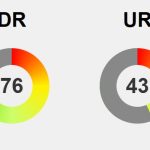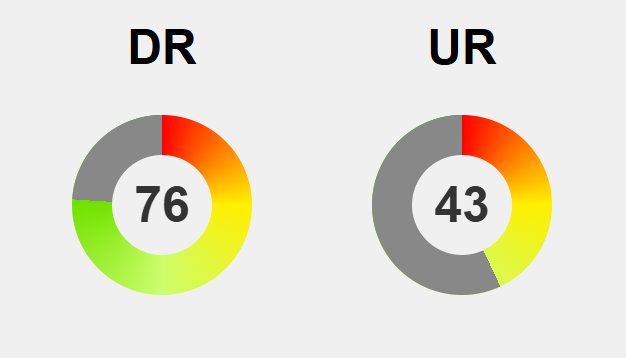Galileo Galilei’s revolutionary discoveries and unwavering defiance of tradition transformed our understanding of the universe and challenged powerful authorities like the church. His telescopic observations—such as moons orbiting Jupiter and phases of Venus—shattered longstanding geocentric beliefs, paving the way for modern science. But did his relentless pursuit of truth make him a hero or a martyr? His bold stance against dogma led to persecution, house arrest, and a lasting legacy of scientific courage. His story isn’t just about groundbreaking discoveries; it’s a compelling narrative of resistance, sacrifice, and the fight for intellectual freedom. As contemporary science faces similar struggles against entrenched interests, Galileo’s example reminds us that progress often demands risking opposition and questioning authority. Will future generations continue to uphold his spirit of curiosity and integrity, pushing beyond boundaries in pursuit of truth? His life prompts us to reflect: how far are we willing to go for the sake of knowledge?
Galileo’s Rise: Challenging Tradition and Igniting a Scientific Revolution
Galileo Galilei stands as one of the most influential figures in the history of science, a pioneer whose work permanently reshaped our understanding of the universe. His innovations, from refining the telescope to making groundbreaking celestial observations, challenged centuries-old beliefs and opened new pathways for inquiry. More than just an astronomer, Galileo became a symbol of curiosity and daring—someone willing to question the accepted wisdom of his time.
His support for the heliocentric model, which places the Sun at the center of our solar system, directly conflicted with the long-standing geocentric view upheld by religious and scientific authorities. This shift from tradition to empirical evidence marked a turning point in scientific thought, laying the foundation for the modern scientific method. Yet, Galileo’s pursuit of truth came with risks, especially when his ideas challenged powerful institutions that preferred to maintain the status quo.
Galileo’s story is as much about conflict as it is about discovery. His willingness to stand against the church and other authorities made him a controversial figure, sparking fierce debates that extended beyond science into questions of faith, authority, and freedom of thought. His resistance to suppressive forces ultimately led to persecution, a trial, and house arrest, transforming him into a martyr for progress in the eyes of many.
This raises a compelling question: was Galileo simply a revolutionary scientist pushing the boundaries of knowledge, or did his unwavering defiance also turn him into a symbol of intellectual sacrifice? His life exemplifies how the pursuit of truth often demands courage in the face of opposition, risking reputation and personal freedom. His legacy continues to inspire those who believe that scientific progress must be driven by boldness and integrity.
Galileo’s contributions ignited a scientific revolution that forever changed how humanity perceives its place in the cosmos. His emphasis on observation and evidence over tradition shifted the focus from philosophical speculation to empirical science. His legacy reminds us that challenging deeply rooted beliefs can be disruptive but essential, ultimately paving the way for new ideas, innovations, and a deeper understanding of the universe.
Breaking Barriers: Galileo’s Discoveries That Reshaped Our View of the Universe
Galileo’s scientific revolution was driven by discoveries that fundamentally altered our view of the cosmos. His improvements to the telescope allowed him to observe celestial phenomena in unprecedented detail, revealing a universe far more complex than previously imagined. Among his most transformative findings was the discovery of moons orbiting Jupiter, which proved that not everything revolves around Earth. He also observed the phases of Venus, providing clear evidence that Venus orbits the Sun, directly challenging the long-held geocentric model. These observations shifted the debate from philosophical speculation to empirical science, making the case for a heliocentric universe.
His approach emphasized direct observation and experimentation, breaking away from reliance on ancient texts and philosophical dogma. This marked a crucial turning point, establishing a new standard for scientific inquiry based on evidence. Galileo’s insistence on data-driven reasoning made science more accessible and trustworthy, inspiring others to look beyond accepted wisdom and seek answers through experimentation. His methodology laid the groundwork for the modern scientific method, emphasizing verification and repeatability.
Galileo’s findings directly challenged the authority of the Church and traditional scholars who supported the geocentric model. His observations of Jupiter’s moons and Venus’s phases demonstrated that Earth was not the universe’s center but part of a dynamic system. These discoveries questioned the very foundation of the worldview upheld by religious authorities, making Galileo a controversial figure. His support for heliocentrism became a direct threat to the prevailing religious doctrine, setting the stage for conflict with the church.
The controversy intensified when Galileo published his *Dialogue Concerning the Two Chief World Systems*, which defended heliocentrism openly. This act of defiance led to his arrest and trial by the Inquisition in 1633. Despite immense pressure to recant, Galileo refused to deny what he believed to be true. He was forced to publicly recant his heliocentric views but continued to hold them privately, facing house arrest for the rest of his life. His resistance turned him into a symbol of scientific integrity and courage.
Galileo’s bold stance came at a personal cost, yet it transformed the scientific landscape. His willingness to challenge entrenched authority underscored the importance of independent thought and empirical evidence. His discoveries paved the way for future breakthroughs, from Newton’s laws of motion to the exploration of distant planets. His work demonstrated that science, rooted in observation and reason, could challenge and eventually replace dogma.
His legacy extends beyond astronomy. Galileo showed that science advances by questioning accepted beliefs and confronting authority. His revolutionary methods and discoveries proved that progress often involves risking opposition and standing firm for truth. This spirit of inquiry continues to drive scientific innovation today, reminding us that pushing boundaries is essential for understanding the universe.
In essence, Galileo’s scientific revolution was not just about new knowledge but about a new way of thinking. His discoveries shattered old paradigms, and his defiance challenged the power structures that sought to suppress truth. Through his work and resistance, Galileo exemplified the transformative power of curiosity, evidence, and courage—an enduring legacy that still inspires the pursuit of knowledge.
Clashes with Authority: The Tumultuous Battle Between Galileo and the Church
Galileo’s clashes with the church and authorities mark some of the most pivotal moments in both his life and the history of scientific progress. His support for the heliocentric model, backed by groundbreaking telescopic discoveries, directly challenged the long-standing geocentric view upheld by religious institutions. This confrontation ignited fierce controversy, as church leaders saw his ideas as a threat to their authority and doctrinal teachings. When Galileo published his findings, suspicion quickly turned into suspicion, then into accusations of heresy.
In 1616, the church formally warned Galileo to cease defending heliocentrism. He was advised not to hold or promote the Copernican system publicly, yet he continued to do so privately. This defiance set the stage for a confrontation that would escalate years later. By 1632, Galileo published *Dialogue Concerning the Two Chief World Systems*, a book that openly defended heliocentrism. This act was perceived as a direct challenge to church doctrine, leading to his arrest and trial by the Inquisition in 1633.
During the trial, Galileo faced immense pressure to recant his beliefs. Religious authorities deemed his ideas not just scientifically wrong but heretical, threatening the church’s claim to hold the ultimate truth about the universe. Despite the danger, Galileo refused to deny what he believed was true. Forced to publicly recant, he was sentenced to house arrest for the rest of his life. This punishment silenced him but also cemented his role as a symbol of resistance against dogma and suppression.
The repercussions of Galileo’s conflicts extended far beyond his personal fate. His trial set a precedent for the tense relationship between science and religion, revealing how powerful institutions can suppress ideas they find threatening, regardless of their scientific merit. His steadfast resistance, even under threat, inspired future generations to stand up for scientific integrity and the pursuit of truth, regardless of opposition.
Galileo’s resilience in the face of persecution cemented his legacy as a pioneer willing to challenge authority. His courage demonstrated that progress often involves personal sacrifice. His story underscores that questioning entrenched beliefs and defending empirical evidence are vital steps toward scientific advancement and societal evolution. His defiance turned him into a lasting symbol of intellectual independence.
Despite being silenced publicly, Galileo’s influence persisted. His ideas continued to inspire scientists and thinkers who believed in evidence over dogma. His clashes with the church exemplify the ongoing tension between free inquiry and institutional control, a dynamic that still plays out today. His life reminds us that confronting authority can be risky but necessary for genuine progress.
Galileo’s conflicts reveal the costs of challenging powerful interests, yet they also highlight the importance of standing firm for truth. His experiences serve as a reminder that scientific breakthroughs often come with resistance, but perseverance can eventually lead to change. His legacy encourages us to question authority, seek evidence, and defend the pursuit of knowledge against all odds.
In the end, Galileo’s clashes with the church were more than personal battles—they were pivotal moments that reshaped the relationship between science and authority. His courage in confronting dogma laid the groundwork for a future where inquiry and evidence would take precedence over tradition. His story continues to inspire those committed to advancing human understanding, no matter the opposition.
This enduring struggle between science and doctrine underscores the importance of free inquiry in the pursuit of knowledge. For those interested in understanding the broader impact of Galileo’s defiance, exploring the story of the Galileo and the Church conflict offers valuable insight. To learn more about this pivotal historical moment, visit Galileo and the Church conflict.
Legacy of Courage: How Galileo’s Defiance Continues to Influence Modern Science
Galileo’s bold challenge to accepted beliefs did more than reshape our understanding of the cosmos; it set a lasting precedent for how science interacts with authority today. His insistence on evidence over dogma laid the groundwork for a scientific mindset rooted in questioning, skepticism, and verification. Today’s breakthroughs—whether in climate science, medicine, or technology—often face resistance from entrenched interests or societal norms, echoing Galileo’s struggles. His example reminds us that genuine progress demands resilience and a willingness to stand firm against opposition.
Modern science continues to thrive on the legacy Galileo left behind. Researchers are encouraged to question assumptions and explore ideas that challenge the status quo, knowing that breakthroughs often come from resisting conformity. Yet, these efforts sometimes encounter pushback rooted in political, cultural, or economic interests. This ongoing tension highlights how the pursuit of knowledge can threaten powerful institutions that prefer stability over change, much like the church did centuries ago.
The tension between science and authority underscores a fundamental truth: progress often involves confronting deeply rooted power structures. Galileo’s experience shows that safeguarding academic freedom and encouraging open debate are vital for societal advancement. When scientists can investigate and share findings without fear of censorship or persecution, the entire pursuit of truth benefits. His resilience in the face of adversity continues to inspire initiatives that protect scientific integrity worldwide.
Resisting entrenched ideas remains challenging, especially when new evidence conflicts with long-held beliefs. Galileo’s journey illustrates that change is gradual and requires persistent advocacy. Clear communication and the demonstration of facts are crucial in overcoming resistance, whether from societal norms or institutional dogma. The path to innovation depends on unwavering dedication to truth and the courage to challenge the status quo.
Educational tools and accessible research play a key role in fostering a culture of inquiry. Developing critical thinking skills and promoting objective analysis ensure that the spirit of Galileo’s curiosity endures. When society values evidence-based reasoning over tradition, it creates space for new ideas to flourish. This ongoing commitment to questioning and discovery is essential for sustained scientific progress and societal growth.
Galileo’s legacy also influences how we view the role of science in shaping the future. His example underscores that progress often comes with personal sacrifice and confrontation. Recognizing this helps us support scientists and thinkers willing to stand up for truth, even when it’s uncomfortable or risky. Embracing his spirit of intellectual courage can motivate continued efforts to challenge misinformation, dogma, and stagnation.
In the end, Galileo’s defiance remains a powerful symbol of the importance of questioning authority in the pursuit of knowledge. His life shows that pushing boundaries and defending evidence are essential steps toward understanding our world more deeply. By carrying forward his legacy, we ensure that science continues to be a force for progress—one driven not by fear of opposition, but by a relentless quest for truth.
A Legacy of Inquiry: Reflecting on Galileo’s Role as a Revolutionary and Martyr
Galileo’s legacy is a powerful testament to the dual roles of a revolutionary scientist and a martyr for progress. His groundbreaking discoveries, from the moons orbiting Jupiter to the phases of Venus, disrupted centuries-old views and laid the groundwork for modern astronomy. Yet, beyond the science, his unwavering defiance of authority and dogma turned him into a symbol of intellectual courage. Galileo showed that challenging entrenched beliefs, even at great personal risk, is essential for genuine progress and scientific advancement.
His fight against the suppression of truth highlights the importance of standing firm in the face of opposition. Despite facing censorship, house arrest, and attempts to silence him, Galileo’s conviction never wavered. His willingness to risk his reputation—and his freedom—underscored the idea that true innovation often comes with sacrifice. By refusing to abandon his ideas, he inspired future generations to question authority, prioritize evidence, and pursue knowledge relentlessly.
Galileo’s story reminds us that progress often involves confrontation and resilience. His courage in challenging the powerful institutions of his time set a precedent for scientific independence and integrity. His life demonstrates that breakthroughs are often born from conflict, and that questioning established authority is a vital part of human curiosity and discovery. The sacrifices he made continue to serve as a rallying point for those who believe that truth must come before conformity.
Today, his legacy influences modern science as a beacon for independent inquiry and skepticism. The resistance he faced echoes in ongoing debates about scientific integrity, environmental issues, and technological innovation. Galileo’s example encourages scientists and thinkers to push boundaries, even when it means standing alone against societal or institutional pressures. His life embodies the idea that the pursuit of truth is a moral duty worth fighting for, regardless of the obstacles.
In the end, Galileo’s story is a reminder that the path to progress is rarely smooth. His courage and persistence transformed science and challenged the very foundations of authority. His dual role as a revolutionary and a martyr underscores that real change often requires unwavering conviction and a willingness to confront the status quo. Carrying his legacy forward means embracing the same spirit of curiosity, resilience, and integrity, ensuring that the pursuit of knowledge remains a force for human progress.







